Iranian lawmaker suggests Qatar host Revolutionary Guards missiles
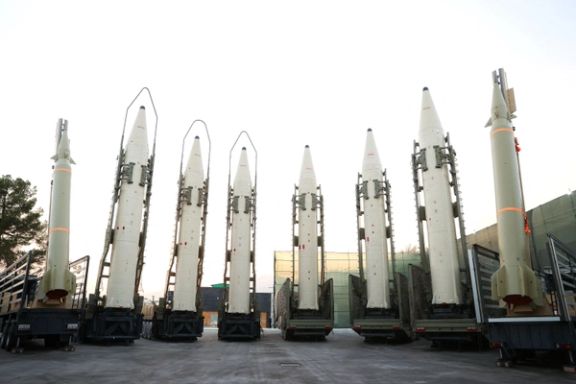
An Iranian lawmaker suggested on Thursday that Qatar expel US forces and allow Iran’s Revolutionary Guards to deploy missiles on its territory to counter Israel.

An Iranian lawmaker suggested on Thursday that Qatar expel US forces and allow Iran’s Revolutionary Guards to deploy missiles on its territory to counter Israel.
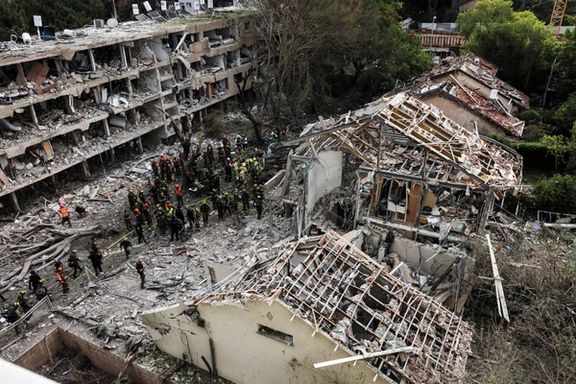
Israel’s comptroller published a report on Wednesday outlining a series of government shortcomings in responding to civilian needs during the 12-day war with Iran and called for fixing gaps in emergency response.
The report was compiled from hotline data, evacuation shelters and field inspections at sites hit by Iranian missiles.
Israel launched a surprise military campaign against Iran on June 13, targeting senior military and nuclear officials as well as sensitive nuclear and military facilities.
Iran responded with drone and ballistic missile strikes on Israel. During the conflict, Iranian missiles hit 50 sites in Israel, including 28 civilian locations, five military facilities, three energy infrastructure sites and one university.
Among the civilian sites identified were in the towns of Bat Yam, Ramat Gan and Be’er Sheva. No specific details were provided regarding the military or infrastructure targets.
According to the report, the shortcomings were divided into two categories: those directly under attack and the wider public affected by the aftermath, the Times of Israel reported Thursday.
A key finding was that Israel lacks a single national authority to coordinate government responses for citizens during emergencies.
During the war, Israel declared a state of emergency. Public services — including schools, civilian air travel and public events — were shut down, which the report said caused economic hardship and disrupted daily life.
State Comptroller Matanyahu Englman made several recommendations for the government, including raising preparedness levels, establishing clearer national coordination and improving support for displaced residents, particularly in cases of relocation or temporary housing.
Over the course of the 12-day conflict, 31 civilians and one off-duty soldier were killed in Israel. Around 11,000 residents were evacuated to hotels and guesthouses nationwide.
Israel’s strikes on Iran resulted in the deaths of 1,062 people, including 276 civilians.
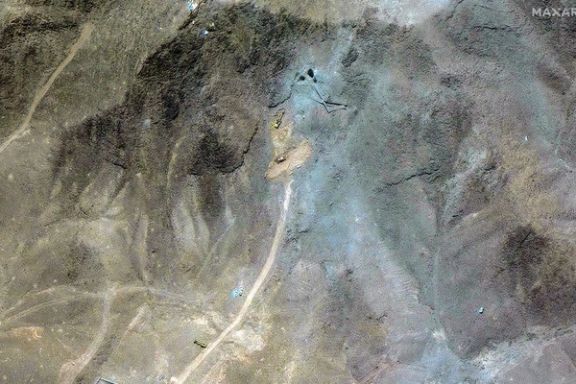
Iran’s inventory of highly enriched uranium is buried under rubble following US and Israeli strikes on the country's nuclear facilities in June, Iranian foreign minister said on Thursday.
“Our enriched uranium is buried under the rubble of bombed nuclear facilities,” Iranian foreign minister Abbas Araghchi told state TV on Thursday.
It appeared to be the first official assertion that Iran's stockpile remained in place after the attack. Their whereabouts and UN inspectors' access to them had been an issue of pointed concern among Western powers.
He warned that if Germany, France and Britain move to activate the snapback mechanism to reimpose UN sanctions, "they will be excluded from nuclear negotiations with the Islamic Republic."
“If the snapback mechanism is activated against Iran, the Supreme National Security Council will decide on the response,” he added, without elaborating.
Araghchi’s comments come after the UN nuclear watchdog warned last week that Iran’s stockpile of highly enriched uranium is “a matter of serious concern,” saying the agency has no visibility country’s activities since the June strikes on its nuclear facilities.
In a confidential report leaked to reporters on last week, the International Atomic Energy Agency (IAEA) said Iran's stock of near-weapons grade uranium increased almost eight percent before Israel attacked its nuclear facilities on June 13.
The report shows Iran had 440.9 kilograms (972 pounds) of uranium enriched up to 60%, marking a 7.9% increase since the UN nuclear watchdog’s previous report in May.
"During this reporting period, the Agency lost continuity of knowledge in relation to the current inventories of nuclear material in Iran ... which urgently needs to be addressed," the report said.
Reuters reported in June that most of the enriched uranium at Iran’s Fordow facility appeared to have been moved days before the attacks.
The Financial Times also reported that preliminary intelligence assessments shared with European capitals also indicated the stockpile was relocated ahead of the US strikes.
Experts have pointed to satellite imagery showing truck convoys outside Fordow.
President Donald Trump dismissed the reports in a June interview with Fox News, saying the "(the Iranians) didn’t move anything.”
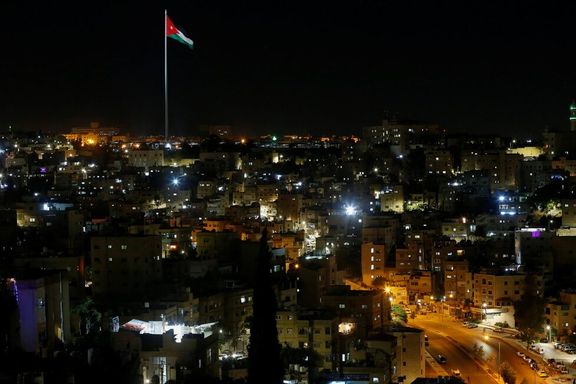
The threat from Iran and its regional allies has sharply increased in recent year, senior officials in Jordan told Iran International, in a setback to decades of stability in the Western-allied kingdom.
“Iran's threatening activities, finance and recruitment, has tripled for the last three years to the extent that there have been people in security associated with Iran who have been accused of spying for Iran," a security source told Iran International on condition of anonymity.
"For Iran, creating something in Jordan is important -- even if on a small scale.”
The source added that even after the official crackdowns earlier this year after a widely publicized raid uncovered a weapons cache initially attributed to the Muslim Brotherhood - a longtime political party in Jordan which was then banned.
Jordan at the time said it had arrested 16 people accused of manufacturing short-range missiles, possessing explosives and automatic weapons, concealing a ready-to-use missile and illegally recruiting and training militants.
Banned Brothers
The Muslim Brotherhood is a century-old pan-Arab movement opposed to Western influence and the erosion of religiosity in public life.
In Jordan its members have long held a significant influence in parliament and public life while its offshoot in the Israeli-occupied Palestinian territories is the Iran-backed armed group and political party Hamas.
“Hamas and Hezbollah were involved for money and training in Beirut,” the security source said. “Those training them were Palestinians from Hamas while Hezbollah facilitated the sites and expertise.”
“Iran wanted to created a front in Jordan as a backup to losing south Lebanon, before that happened last year,” the source added, referring to the weakening of Hezbollah following a punishing military campaign against the group last year.
'Iran influence on rise'
“It’s not a secret that the negative influence of Iran is still on the rise,” said another security source, saying that Jordanian citizens also perceive an increased threat.
“Public opinion in Jordan shows that the main threat to Jordanian national security 20-30 years ago was Israel but today it is Iran, and has been for the last 5-6 years,” he said.
In April last year, following an Israeli strike on Iran’s consulate in Damascus, the security head of the Iran-backed Iraqi militia Kata'ib Hezbollah. Abu Ali al-Askari said the group was "prepared to arm the Islamic Resistance in Jordan" with supplies for up to 12,000 fighters.
Their goal, he said, was to "defend the Palestinians and avenge the honor of Muslims" by targeting Israel, saying the group would start by "cutting off the land route that reaches the Zionist entity," referring to the Jordan-Israel border.
The perceived threat has seen Israel enhance its border security with Jordan in addition to carrying out a surprise drill for its forces in August, simulating a ground invasion from the Jordanian border.
“Weapons from Iran have also continued to be smuggled into Jordan and on to the West Bank from Syria," the security source added.
Friend of my enemy
Tehran continues to defy Amman, which it sees as an ally of Iran’s arch-enemies the United States and Israel, and a senior Jordanian official said protests through diplomatic channels have proven futile.
“We told them (Iran) they cannot fly their missiles over Jordan, but they did anyway,” the official said.
“They (Iran) don’t listen. We said they can fly over Syria, but they are adamant and have little regard for the consequences. This is a country that thinks they should be the masters of the Middle East.”
While the official said that Iran had lost influence in the region after military setbacks to its regional armed allies and a June war with Israel and the United States, the threat to Jordan abides.
“The desire and will is there to focus on Jordan because they lost cards with Hezbollah and Syria, but their ability has somewhat weakened. On the borders with Syria they’d love to do more damage but they lost a lot of their operatives there and Syria isn’t friendly to them.”
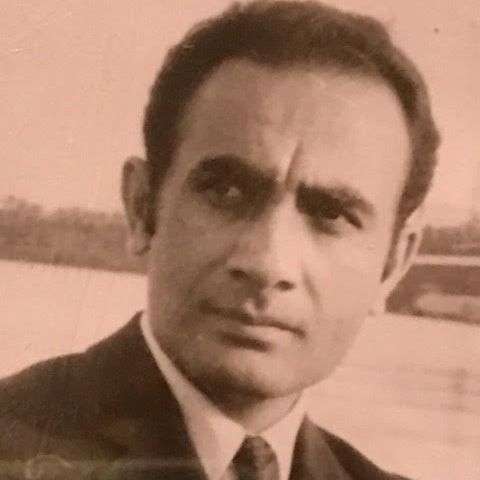
A onetime Iranian security chief whom a lawsuit accuses of torturing anti-Shah dissidents transferred more than $20 million abroad before fleeing to the United States in 1978, the Guardian reported on Thursday citing leaked diplomatic documents.
Parviz Sabeti later westernized his and his wife’s names to Peter and Nancy after settling in Florida, the report said. The lawsuit against him by three plaintiffs describing themselves as former political prisoners seeks $225 million in damages.
Using those aliases, Sabeti established a successful real estate development company in central Florida, while he, his wife and their two daughters were listed as directors of several active firms, the report said.
The family own at least eight properties in Orange County, including a $3.5m mansion in a community called Windermere purchased in 2005, it added
Sabeti served as a top official in Iran's secret police, SAVAK, from 1973 to 1978. He resurfaced publicly during Iran’s widespread 2022 protests after decades out of view.
The report comes after a US district court in Florida rejected multiple motions by Sabeti to dismiss the case last month.
Sara Colón, an attorney for the plaintiffs, welcomed the Florida court’s rejection of Sabeti’s dismissal motions and its order to preserve her clients’ anonymity, telling the Guardian the ruling was a “positive result for survivors of torture who are seeking accountability and justice.”
Colón added that plaintiffs had been subjected to death threats and intimidation since filing the lawsuit.
An advocacy group for victims of torture and their families, The Iranian Collective for Justice & Accountability, said it hoped the Sabeti case would help end a “cycle of violence.”
“All victims deserve justice, and everyone engaged in torture and repression should be held accountable,” the Guardian quoted a spokesperson for the group as saying.

Conservative organizer and activist Charlie Kirk, who was killed by an unknown assassin on Wednesday, had praised the Iranian-American community and supported US attacks on the Islamic Republic in June while generally supporting its foe Israel.
A video clip of him debating on a university campus has been widely shared by Iranians on social media and depicts him lauding immigrants from Iran as hardworking and successful in any field they pursue in the United States.
Kirk was engaging with students on Diversity, Equity and Inclusion (DEI) and asserted that Iranians fleeing their homeland succeeded admirably due in America's free-market economy and merit-based system.
“Iranians, Persians, you guys do not need DEI. You are the most successful immigrant group in America by far, because you are some of the smartest, hardest-working people, and you did that without any favors or handouts,” Kirk said.
“Persians have benefited from the idea: do not give me anything, do not give stuff, just give me a chance. And because of that, Persians or former Iranians are some of the wealthiest groups in the history of America,” he added.
The American left would seek to class Iranians as white, Kirk said, to deprive them of their deserved status and privilege other minorities.
'NO WAR'
Despite opposing US military entanglements in the Middle East for years, Kirk broke with some of US President Trump's other staunch supporters by strongly supporting his decision to launch attacks on three major nuclear sites on June 22.
In 2020, Kirk had warned against a war with Iran following Trump's move to assassinate Iranian general Qassem Soleimani in a drone strike in Iraq.
"Iran is an evil regime It was correct to meet an embassy attack with force. Critical we remain restrained and disciplined against another endless, reckless war in the region. Our future is not in the Middle East Sand and death will further bankrupt us," he said. "NO WAR with Iran!"
A week after Israel launched its surprise military campaign on Iran in June but less than two days before Trump's intervention, Kirk was dubious about confronting Tehran.
“This was Persia. This is a very proud country. It’s a big country; it’s two and a half times the size of Texas. 92 million people," Kirk said in a podcast interview. "So President Trump has to weigh all of this. He has earned our trust and, I believe, he’s gonna bring this to completion for the betterment of all Americans,”
Kirk argued against US military involvement, citing Iran's historic resistance to outside powers.
“They were a great power for a thousand years. Not even the Romans could defeat Persia. Now, I’m not saying they’re comparable to our Marines or to our Air Force, but is that really the battle that we want in front of us?” Kirk said.
Still, Kirk swiftly praised the attacks dubbed "Operation Midnight Hammer" which Trump promptly said had obliterated Iran's nuclear program.
"America stands with President Trump," he wrote on X. "President Trump has been navigating this quite well in fact, he could potentially declare victory," he added in a video testimonial posted online.
"He went after the nuclear program, no US troops killed in the way, pretty remarkable when you think about it."
Key allies of Trump on the right including Georgia congresswoman Marjorie Taylor Greene and commentator Tucker Carlson criticized the move.
Despite raising some doubts about Israel's conduct of a nearly two-year-old war in Gaza, Kirk expressed frequent support for the Jewish state and described it as a bulwark of what he called Judeo-Christian civilization against violent Islamism.
“I propose that the US army, accomplice of Israel, be expelled from Qatar, and that the Revolutionary Guard aerospace force deploy Fattah hypersonic missiles on your soil to defend your sovereignty,” Addressing Emir Sheikh Tamim bin Hamad Al Thani, Mojtaba Zarei wrote on X.
In a separate post, Zarei wrote: “The respected emir of Qatar should request support from the Revolutionary Guard aerospace force to station in Qatar.”
Iran accuses US of complicity
His remarks followed an Israeli strike in Doha this week that killed a Qatari security officer and several Hamas members. Iran’s military said the attack could not have happened without US support. “The US government is complicit in these crimes,” the armed forces said on Wednesday, accusing Washington of backing “the Zionist regime’s crimes.”
US President Donald Trump said Israel acted on its own and Prime Minister Benjamin Netanyahu said Israel “takes full responsibility.”
Tehran seizes on regional anger
Iranian leaders condemned the attack as a violation of Qatari sovereignty. President Masoud Pezeshkian called it “illegal, inhumane and anti-peace,” while national security chief Ali Larijani wrote in Arabic: “O countries of the region! Prepare yourselves for my upcoming dominance.”
Hardline activists in Tehran described the strike as a “lesson” for US allies. Commentator Reza Ghobeishavi said on X that it “benefits Iran’s camp and Israel’s opponents, while harming the camp that supports normalizing relations with Israel.”
Qatar-Iran relations
Qatar hosts the US Al Udeid Air Base, the largest American facility in the Middle East. While Iranian officials have voiced strong since the Israeli strike, Tehran itself targeted in June during its confrontation with the United States. Iran said at the time that Doha had been notified in advance, while Qatar condemned the attack but said it wanted to avoid escalation.